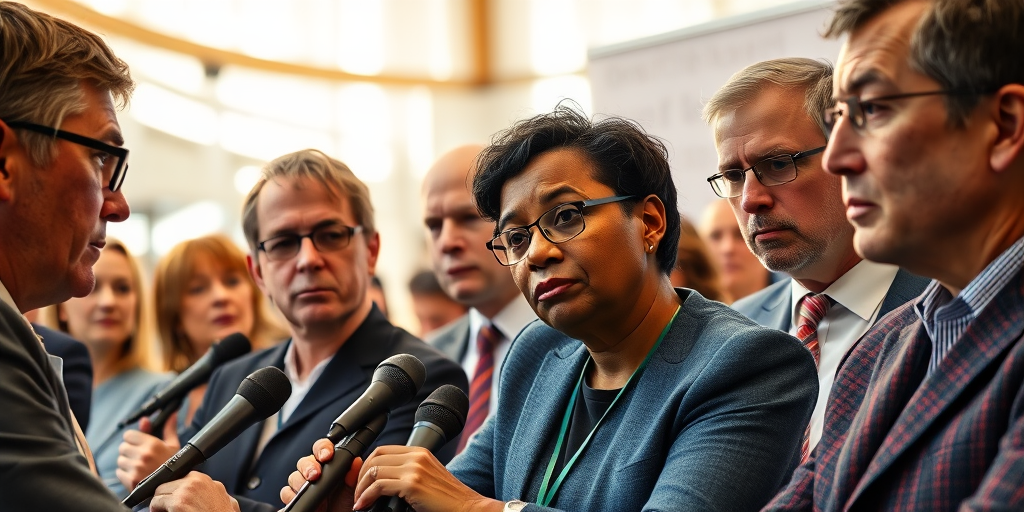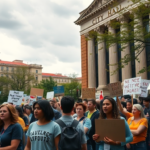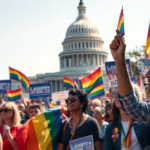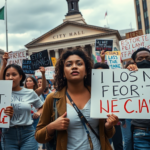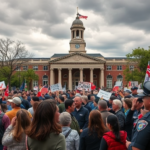BBC Reporters Restricted from Wearing Black Lives Matter T-Shirts: A Local Perspective
Recently, BBC Director General Tim Davie made headlines by declaring that reporters at the esteemed news corporation are prohibited from wearing Black Lives Matter (BLM) T-shirts in the newsroom. This decision, revealed at the Cheltenham Literature Festival, has sparked notable discussion and debate both within the media industry and amongst the general public. While the BBC affirms its stance against racism, it emphasizes the importance of maintaining impartiality by restricting journalists from expressing political affiliations in their professional capacity.
Ensuring Impartiality and the BBC’s Stance
Davie’s directive underscores the BBC’s commitment to impartial reporting, a core value critical to its international reputation. The policy stipulates that journalists should not display any items with political symbolism, including BLM T-shirts, as it could compromise their perceived objectivity when covering sensitive topics such as racism.
“We stand absolutely firmly against racism in any form,” Davie stated. “But you can’t come into the newsroom with a Black Lives Matter T-shirt on. It is a political campaign with specific objectives, and our role is to cover it impartially.”
This decision aligns with initiatives that bolster the BBC’s mission to convey unbiased news, ensuring that journalists’ personal beliefs do not unduly influence their reporting. During his address, Davey highlighted the growing challenge of reconciling the need for diversity with maintaining impartiality. The admission highlights an ongoing balancing act not only within the BBC but also across media outlets striving to uphold journalistic standards.
Local Impact and Community Reactions
For American audiences, particularly those involved in media or advocating for racial justice, the move has sparked varied reactions. The Black Lives Matter movement remains a significant cultural and political force, stressing the urgency of identifying and dismantling systemic racism. Thus, the BBC’s policy has reverberated among communities keen on ensuring equitable representation.
Ellen Rodriguez, a lecturer in Media Studies at Southern Texas University, provided a nuanced perspective on the development. “Impartiality is vital for any credible newsroom, given that journalism serves as a societal pillar for truth-telling,” she explained. “However, the wider conversations surrounding Black Lives Matter necessitate a thoughtful approach on how activism is represented without eroding journalistic integrity.”
Conversely, members of the community perceiving the directive as a limitation on free expression raise essential questions about corporate influence over individual agency. Community advocate James Morales emphasizes the importance of journalists reflecting the issues and struggles of their communities. “When policies restrict expressions of solidarity, it raises concerns about whether media institutions truly align with their purported values,” he critiqued.
Connection to Past and Present Local Issues
The conversation within the United States around freedom of expression and media impartiality is not new. Historically, American newsrooms have grappled with policies that balance journalistic objectivity and social responsibility. These debates take center stage amidst wider social justice movements, reflecting a public appetite for transparency, diversity, and accountability within media institutions.
For many communities across America, the imperative for media organizations to tackle racism and allow visibility of its impacts is clear. Journalist and podcaster Ava Turner, who has covered racial issues extensively, noted that “as we push for change, it’s crucial that media entities scrutinize practices to ensure they align with social progress, especially in championing underrepresented voices.”
Future Implications and Balancing Perspectives
Moving forward, the BBC’s decree could invite broader introspection within international media landscapes striving for equilibrium between freedom of expression and editorial impartiality. In the United States, this resonates with initiatives within news organizations aiming to cultivate newsroom environments that embrace diversity in all its forms.
As discourse unfolds, balancing varied perspectives is essential in advancing dialogue on journalism’s role in representing societal issues. Recommendations include institutional support for diversity training and fostering dialogues among employees that cultivate shared understanding.
While varying reactions showcase the complexities surrounding media and activism, ultimately, policies must steer closer to embodying principles of inclusivity and authenticity. For those encountering similar debates, civic engagements and actively participating in media literacy endeavors can question and eventually refine organizational approaches.
Residents interested in learning about media ethics or channels to express viewpoints may consider attending local forums or reach out to community centers dedicated to advancing informed discussions on freedom of speech and representation.
As this story continues to develop, it underscores an ongoing narrative that transcends national boundaries—reflection, action, and inclusive dialogue encompass the crux of navigating journalism’s evolving landscape amid unprecedented social change.

